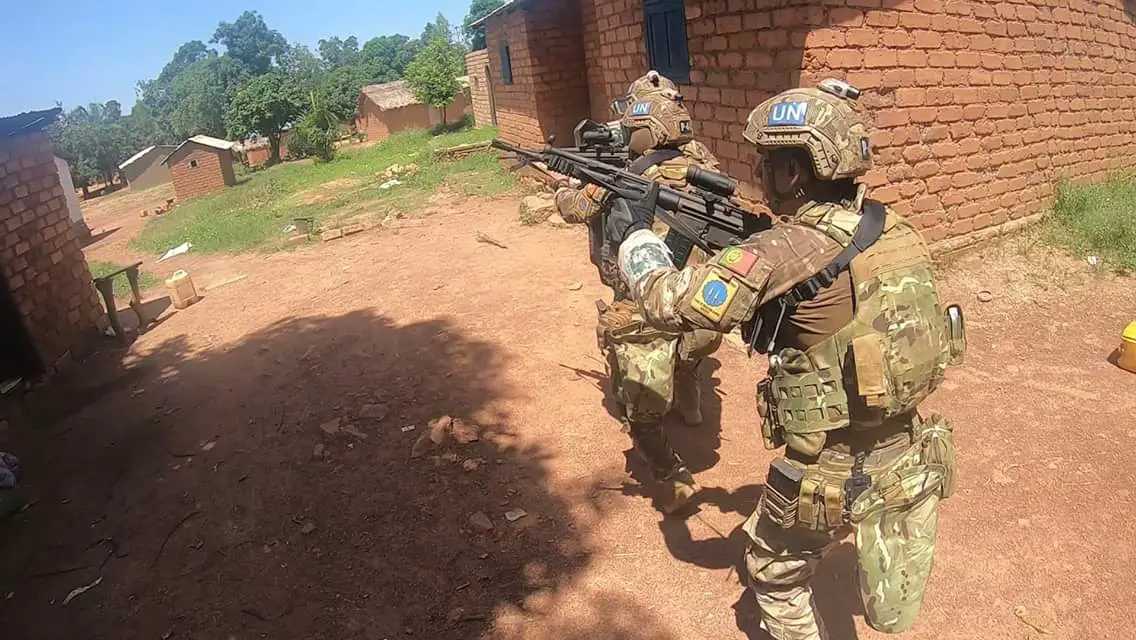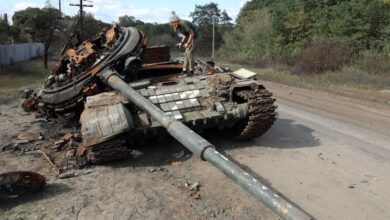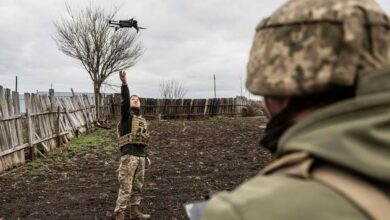Central African conflict informs Portuguese procurement and UN peacekeeping
Roughly 200 Portuguese troops are deployed with the UN MINUSCA peacekeeping mission in CAR
Portugal’s deployment to the United Nations peacekeeping mission in Central African Republic, known as MINUSCA, is having a significant impact on its procurement and defense strategy, and may also mark a turning point in U.N. peacekeeping.
“There only 200 Portuguese in the Central African Republic but, we have made a difference in the situation,” said Admiral Antonio Manuel Fernandes da Silva Riveiro, Chief of Staff of the Portuguese Armed Forces.
Portugal has deployed about 200 forces, mainly paratroopers, as part of the roughly 13,000-strong MINUSCA mission in troubled CAR, where a conflict has raged since 2012.
The Portuguese posture has shifted from a traditional peacekeeping to a proactive “peace-enforcement” mandate. Portuguese forces and other U.N. contingents have patrolled aggressively and engaged in combat rarely seen in peacekeeping missions.
This is not unprecedented in Africa. In March 2013, the U.N. Security Council allowed for the creation of a special intervention brigade within the MONUSCO peacekeeping mission in eastern Democratic Republic of Congo to carry out targeted offensive operations.
These forces played a crucial role in the eventual defeat of the M23 rebellion but were slow to respond to the threats posed by other armed groups in the country. Such operations were rarely undertaken by U.N. peacekeeping mission during the Cold War with the exception of the Korean War from 1950 to 1953.
In CAR, Portugal has not acted alone and a host of nations have contributed soldiers to the mission. Rivieiro credited the Rwandans and Bangladeshis as capable forces who punched above their weight in the process of stabilizing the country. Rwanda is the largest contributor to MINUSCA with 1,825 troops as of August.
But Portugal is the only NATO member state taking part in the MINUSCA mission. In the past, Portugal also sent a small contingent to MINUSMA, the U.N. peacekeeping mission in Mali, where a Portuguese soldier was killed in a terrorist attack in Bamako in 2017.

The aggressive operating procedure of the CAR peacekeeping force may have influenced the mission in Mali, although the latter was launched two years earlier. Although similar in size, with about 15,000 personnel, MINUSMA includes multiple NATO members and has proven far more deadly, with 201 peacekeepers killed since its creation.
So far no Portuguese forces have been killed in CAR, although 91 peacekeeping personnel have died since the MINUSCA mission was launched in 2014.
Central Africa is the Portuguese military’s first real combat operation since 1974, Rivieiro said.
“Our experience in the CAR has validated our training and tactics. We knew our training would be valuable in combat and our operations have been a success,” he said.
Prompted by their experiences in CAR, the Portuguese Army is now undergoing a series of modernizations, ranging from man-deployable drones to new infantry weapons.
“We will receive a new family of light weapons and [squad] machine gun,” said Richard Camilo, a staff officer with the Force Planning Division of the Portuguese Army. Camilo spoke exclusively to the Defense Post at the SMi-organized UAV Technology conference in London last week.
As part of its modernization focus, the German Heckler & Koch G3 rifle will be ditched in favor of FN Herstal arms from Belgium. Portugal is purchasing weapons from the FN SCAR range through a NATO Support and Procurement Agency contract. The contract was valued at almost €43 million ($47 million) and deliveries will be completed by the end of 2022.
Portugal will receive 11,000 SCAR-L (Light, chambered for NATO’s 5.56x45mm round) STD assault rifles, 300 SCAR-H (Heavy, chambered for 7.62x51mm NATO) STD battle rifles, and 450 SCAR-H PRs (Precision Rifles) which can be used as sniper rifles. About 1,700 of the SCAR-L STD rifles will be fitted with grenade launchers.
Highly modular, the SCAR was designed for U.S. Special Operations Command and has already seen use by the militaries of more than two dozen countries, including Germany, France, Saudi Arabia, Malaysia, Spain, Turkey, India and South Korea.
Camilo also confirmed that the Portuguese military will adopt a new sidearm, swapping the dated but reliable P38 Walther pistol for the Gen 5 Glock-17 pistol. This move will close the door on another weapon that saw significant use in Portugal’s previous round of conflicts in Africa and is still common across southern Africa.
Manuel Dos Santos of the youth wing of the Atlantic Treaty Association of Portugal said the armed forces have taken great pride in the CAR deployment in part because there have been no combat deaths despite the country’s involvement in high-temperature combat operations.
“The Portuguese role in the Central African Republic shows our commitment to the international community and to the humanitarian needs of people far from Portugal,” he said.












